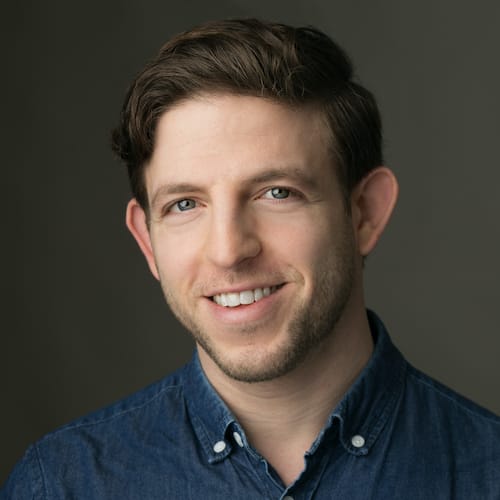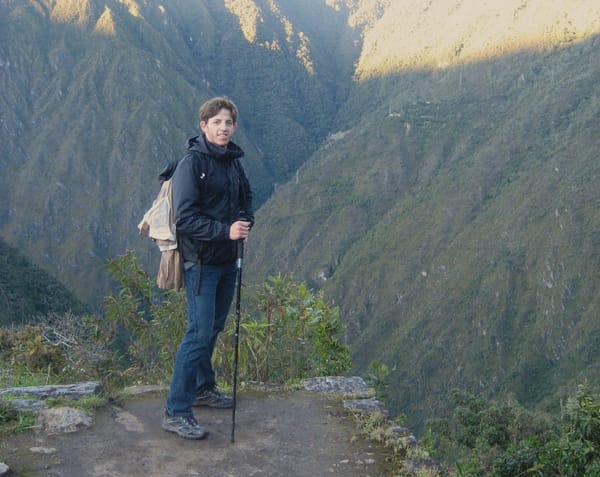Year in Review: My Fifth Year of Consulting
Your year was better than you think. Our negative memories have a stronger affect on us than positive memories. As a result, we overlook all the great things we achieved, miss opportunities to improve, and start the new year with either hopeless pessimism or unrealistic optimism.
This is an easy trap to fall into when you’re running (or working for) a startup, where last week seems like a distant memory, and the wins from last month or quarter are buried in the brain under daily snafus.

The same is true for me, since I work with 10-20 startups each year. Success stories get overshadowed in my mind by upcoming deadlines and unsettled challenges. That’s why I’m taking time to review and write down what went well (and what could’ve been better).
To fight back, I wrote down what went well for me this year, and by sharing this list my hope is that you:
- Get an interesting inside peek into startup consulting.
- Feel inspired to do your own year-in-review to recognize all the positives from this year (and feel happy) and identify what you could do even better next year (and grow).
- Take away practical tips for replicating the things that worked well for me and apply them to your own work next year.

Starting with the positive…
What went well
Stopped consulting for a full month to travel through Russia and Montana, completely off the grid. No email, no obligations. Also, no revenue. A friend joked that this was the most expensive trip I’ve ever taken because of the $XX,000 in consulting fees I would have earned that month.
I worried about the financial and professional impact, but in hindsight it was the right decision: Not only did the mental benefits of disconnecting and going on an adventure outweigh the financial hit, but my earnings went up 20% in the second half of the year, probably thanks to my renewed energy and mental clarity. Now I’m preparing to go away for another full month.

Try it: What’s a trip you’ve been wanting to take? Block off the time in your the calendar now so that everything else gets scheduled around it. Set expectations with your team that you will be off-the-grid. I know a startup CEO who disconnected for a full week and went to Colombia. He came back full of energy and optimism, and nothing exploded in his absence.
Developed and launched a new framework for software startup messaging. After seeing a recurring challenge for my clients, I developed, tested, and launched a framework for solving that problem through a reliable and efficient process. It also gives companies something concrete to buy, if they’re worried about more open-ended retainers. The framework helped me deliver more value in less time, helped clients understand what to expect. It accounted for just 10% of revenue this year but it’s on track to bring in much more in the next year.
Try it: What’s a recurring problem in your work? Create a framework for solving that problem so that next time it can get done more efficiently, and people will start seeing you as an expert in that area.
Published seven essays. Two of them attracted thousands of readers, hundreds of subscribers, and a few dozen leads. My post on finding consulting leads (from 2015) remained the most-read post this year.
Try it: What do you know better than your audience or team? How can you share your knowledge? Even if you’re not a keynote speaker or bestselling author (neither am I, by the way), there’s something you know better than your peers or audience. To them, you’re an expert, and they would be thrilled to learn from you.
Whether your goal is to get more customers, find your 1000 true fans, help your team, or just develop your ideas, start writing!

Regained control of my time. I no longer work on weekends or evenings (with few exceptions), I keep Fridays open for admin work, batch calls on Thursdays (as much as possible), and hired an assistant to help with scheduling and other time-consuming tasks.
Try it: Think about the last time you made significant progress or a big breakthrough… It probably came right after a period of rest and during a period of uninterrupted focus. And when was the last time you had a hectic day, did anything meaningful actually get done?
Set strict rules about your schedule and don’t be afraid to enforce it. Nobody will get offended if you reject their calendar invite and suggest a different time. If anything, they will respect you more for valuing your time and for focusing on deep work.
Started working exclusively with enterprise software startups. I used to hedge by describing my consulting service in the more general “growth marketing for tech companies,” but I realized that 1) most of my clients have been enterprise software startups, 2) there are plenty more startups like them, the market is huge, and 3) there are few marketers who understand deeply technical enterprise software, so I will benefit from highlighting my technical background (and I have).
Try it: What’s an opportunity right in front of you that you’ve been ignoring? It’s there. One of the co-founders of Writely (later acquired by Google and turned into Google Docs) told me that for a long time they insisted on describing their product as a collaborative text editor (allowing multiple live editors was groundbreaking at the time), even as its users called it “a web-based Microsoft Word.” Eventually they embraced and emphasized the benefit of editing docs online, and you know the rest…
Made conscious effort to overcome impostor syndrome and scarcity mindset, so I could say “no” to more projects and avoid self-inflicted scope creep. As a result I had more time to relax, focus on deeper and more important work, and provide more value to clients.
Try it: These are two major psychological hurdles—for me, at least—so there’s no quick fix. Listen to the eye-opening episode about scarcity from the Hidden Brain podcast.
Conducted growth workshops at two of the top VC firms. Clear lift to my standing in the community and validation of my expertise, which comes with mental and financial benefits.
Try it: Who’s the best in your field and what are they doing that you’re not? Challenge yourself to try one of those things. for me, I saw a successful consulting firm thrive entirely on selling one framework, and met a consultant who sells nothing but workshops. They inspired me to experiment with both, which turned out great for business.
Created consulting principles to guide my day-to-day decision-making towards my long-term strategy. Principles include: Make reversible decisions fast; optimize for value, not time or tasks; if not “hell yeah,” then “no.” The list is hanging in my office where I see it every day. It helped me stay on course towards my long-term career (and personal) goals.
Try it: How does your daily behavior need to change for you to meet your long-term goals? Codify those behaviors with a list of principles or in a standard operating procedure and put it somewhere visible. Read Principles by Ray Dalio and this post on “Hell Yeah” by Derek Sivers.
Next, there’s always room for improvement…
What could be better next year
- Read more. I’m embarrassed to say I read fewer than 12 books this year, falling short of my goal. I could blame it on my choice of books but the reality is I become a slug in the evenings and binge on mindless activities, even though reading a book would be just as relaxing but infinitely more fulfilling.
- Write more. I only published 7 essays this year, short of my goal of 12. Although they brought in great traffic and consulting leads, overall traffic was still down 50% compared to last year when I wrote 9 essays and significantly updated another. Besides bringing in new clients, writing helps me get clarity on my observations and ideas, and impact more people than through consulting alone.
- Dedicate more time for creative play. Do more things that are fun, engaging, and don’t have a financial motive, like writing travel essays and drawing. It feels good to do something for an audience other than the startup ecosystem. I bought a top-of-the-line iPad last year to (re)start drawing cartoons, and my output for the year is a shameful zero.
Take a moment, a day, or a week to reflect on what went well for you and what could be improved. If you feel compelled to share, add a comment!




